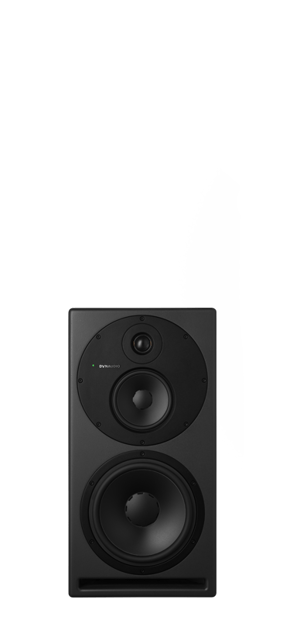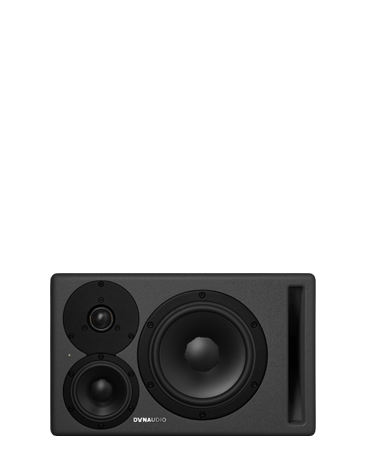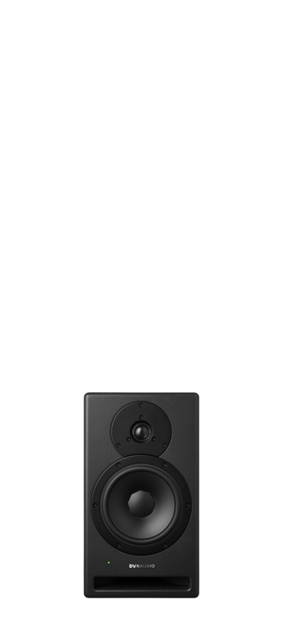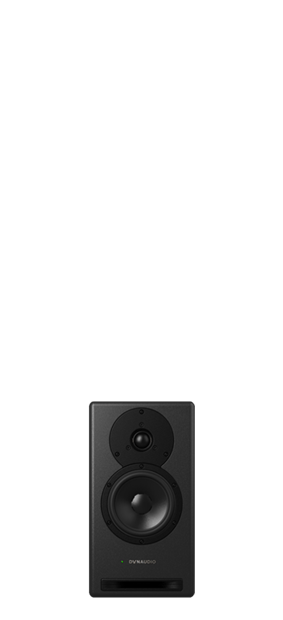- Home
- >
- Professional Audio
- >
- Core
- >
- Core 47
- Home
- >
- Professional Audio
- >
- Core
- >
- Core 47
Core 47
Extreme consistency ...
Core 47
Studio professionals need to trust the monitors they use every day. They need to know recordings will sound the same at 10pm as it did at 10am. And they need to know that they don’t need to worry about listener fatigue. Most of all, they need to be secure in the knowledge that they’re hearing everything that was recorded – warts and all – so they can make the best mixing decisions.
Trust is something that’s earned in this industry and Core 47 is ready to earn yours by giving you the most accurate reproduction that the latest technology and more than 40 years of expertise can provide. And when we say ‘accurate’, we really mean it: all Core monitors are calibrated to within a reference of 0.2dB at our factory in Denmark. You can install 100 and they’ll all perform to the same high standard.
Core 47 is the mid-size model of our flagship professional reference monitor series. Our engineers codenamed it ‘Bulldog’. You’ll know why when you fire it up.
This compact three-way monitor features an eyebrow-raising 500W + 500W + 150W of Class-D power from Pascal amplification, as well as sophisticated digital signal processing and a flat bass response down to 44Hz at -3dB, and 37Hz at -6dB with a gentle roll-off. And it reaches all the way up to 31kHz – never let it be said monitoring can’t give you a real high.
No more second-guessing
Let’s start at the top. Dynaudio studio monitors have always been famous for their revealing detail. The Esotar Pro tweeter takes the word ‘revealing’ to a new level. It’s the culmination of our engineers’ obsessive attention to driver detail, and uses innovative airflow technology (as well as a powerful neodymium magnet) to ensure that what went in, comes out.
Advanced manufacturing techniques and extensive measuring in our Jupiter testing facility have resulted in the ingenious Hexis inner dome. It sits just behind the tweeter diaphragm and optimises airflow to improving thermal response and eliminating unwanted internal resonances. The result is the best imaging, transient detail, and effortless high frequency response. It’s the kind of tweeter you can listen to long into the night during marathon mix sessions. Full detail and clarity, but no fatigue.
The 4in midrange driver provides staggering detail. It uses our proprietary MSP (Magnesium Silicate Polymer) material in its one-piece cone for the perfect balance of lightness, stiffness and damping. That, coupled with an aluminium voice-coil and neodymium magnet system, means an incredibly fast response and authoritative control. With crossover points at 475Hz and 5.25kHz, Core 47 delivers so much more of the critical vocal range in one driver than typical designs, ensuring your mix decisions on vocal balances and dialogue subtleties are made with confidence.
Core 47 and Core 7 share the same woofer. However, in a three-way design, this driver can focus on delivering deeper bass since midrange duties are handled by the 4in driver. This helps deliver the lower frequencies deliver awesome clarity, while the amplifier’s power and gentle roll-off let your ears (and your recordings) take full advantage of all the depth on offer. And, most importantly, all this deep energy is tonally accurate, letting you equalise bass instruments, kick drums, and all those subwoofer “booms” in the movies.
And because each driver is handmade in our factory in Denmark (we produce 1.4 million drivers each year for our home hi-fi, custom-install, in-car and pro-studio speakers), we can maintain incredibly small tolerances and deliver exceptional imaging. This consistency in each driver means you can use Core monitors in multiple studios and have them all sound and perform at the same high level – everything you need to hear, everywhere you go.
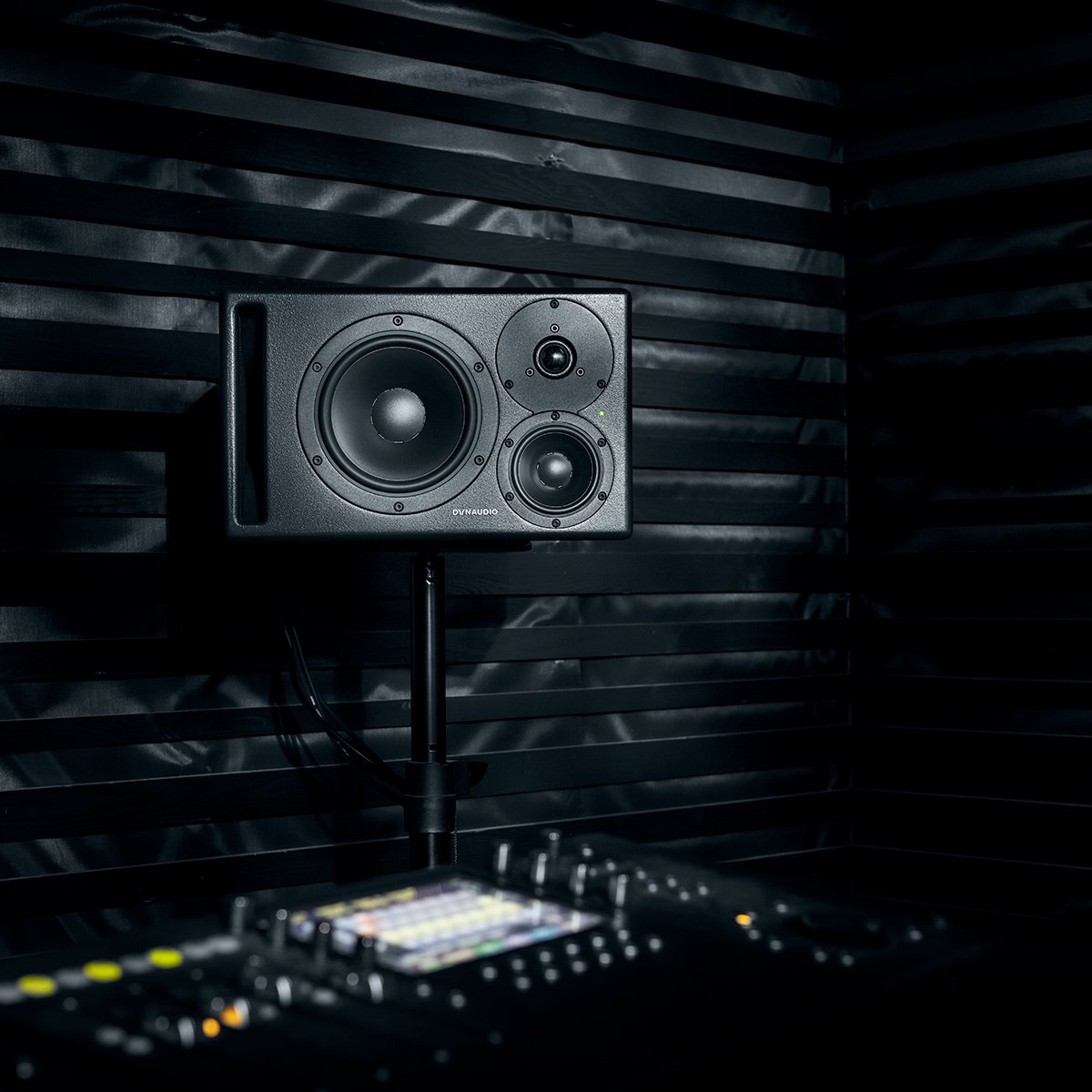
Under the hood: brains as well as brawn
The Dynaudio AIR series was famous for its advanced DSP system. But times have changed, and our acoustic engineers are restless folk… so they’ve spent the intervening 18 years innovating. That’s resulted in some great leaps in DSP sophistication – but also in the way it’s applied in everyday use. You wanted something easier to use, and that’s exactly what you’ve got – with even better performance.
We’ve given Core 47 the power to optimise itself for differing acoustic environments. There are three settings: Anechoic, for when the monitors are placed on stands in rooms that have sufficient dampening treatment (such as recording studios and dubbing stages); Desk, for when they’re on a workstation or meter bridge; and Soffit, for when they’re mounted in properly designed wall soffits as part of an overall architectural acoustic design. And that’s not all: you can also set boundary filters that compensate for walls or corners where low-frequency room modes can be triggered.
We’ve marked the speakers ‘left’ and ‘right’, but tweeter position depends on your room. Core 47 can be used tweeters-in or tweeters-out, depending on the room and listening position.
Users can also alter the overall presentation. Core 47 uses the same concept as the LYD series Sound Balance filter – a different design from the typical tweeter and woofer adjustments found on most active monitors. Instead of simply adjusting the level of the tweeter up or down, which will affect phase response, Core 47 uses a full-spectrum band-pass filter that tilts depending on the desired tonal response. In the ‘Dark’ setting, the entire frequency response is tilted so that 20kHz is down -1.5dB while 20Hz is up +1.5dB. In the bright setting, the tilt is reversed (+1.5dB at 20kHz and -1.5dB at 20Hz). This gentle filter, unlike traditional shelving EQs, maintains the proper phase response between the drivers while providing the tone that meet your tastes.
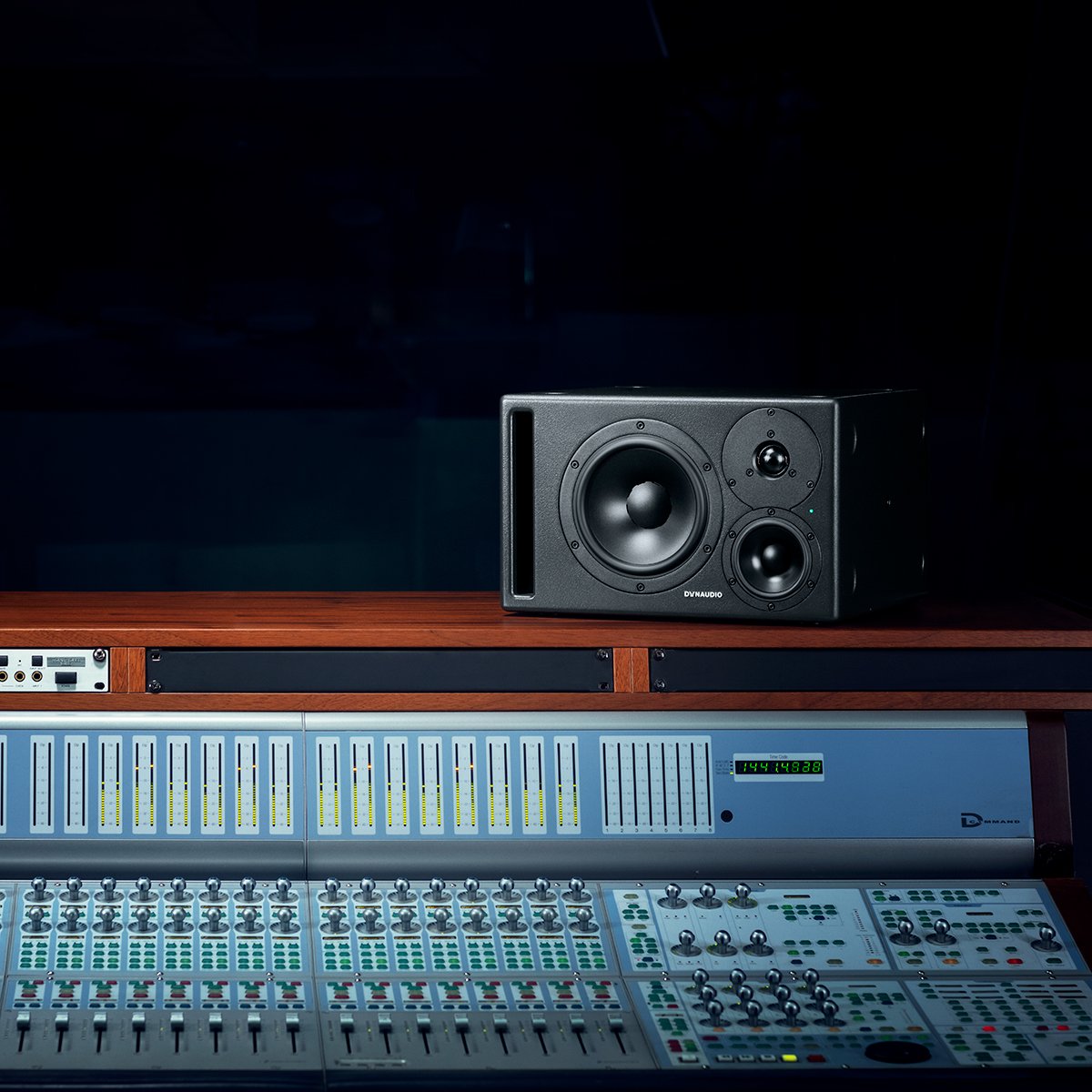
Input sensitivity tailored to your studio
The noise-floor and signal resolution of any monitoring system is critical to its performance. Whether you’re using the analogue or digital inputs, you need to be able to control the gain staging between the monitor controller and the speaker system. We’ve provided a range of 0dBu to +24dBu to match the input sensitivity to the output level. Once optimised, Core 47 processes all analog signals at a 192kHz sampling rate for the greatest degree of mathematical precision from the advanced DSP processor.
When using the AES digital inputs, there are two settings: one to determine which channel (L or R) of the AES stream is used for that monitor, and a second to determine the maximum output SPL. If you want maximum output SPL, set this to 112dB (124dB peak for a pair half space). If you work mostly at lower levels, choose a lower SPL setting to optimise the bit resolution of the AES input for the best linearity.
When using the AES input, Core 47’s DSP operates at the incoming sample rate and either locks to the AES clock or incoming word clock to maintain the most accurate signal possible. That means if you work in 48K, for example, you can send the signal straight to your speakers in 48K. It’s as simple as that. Unlike other competitors there is no sample-rate conversion. You give it 192, it does 192.
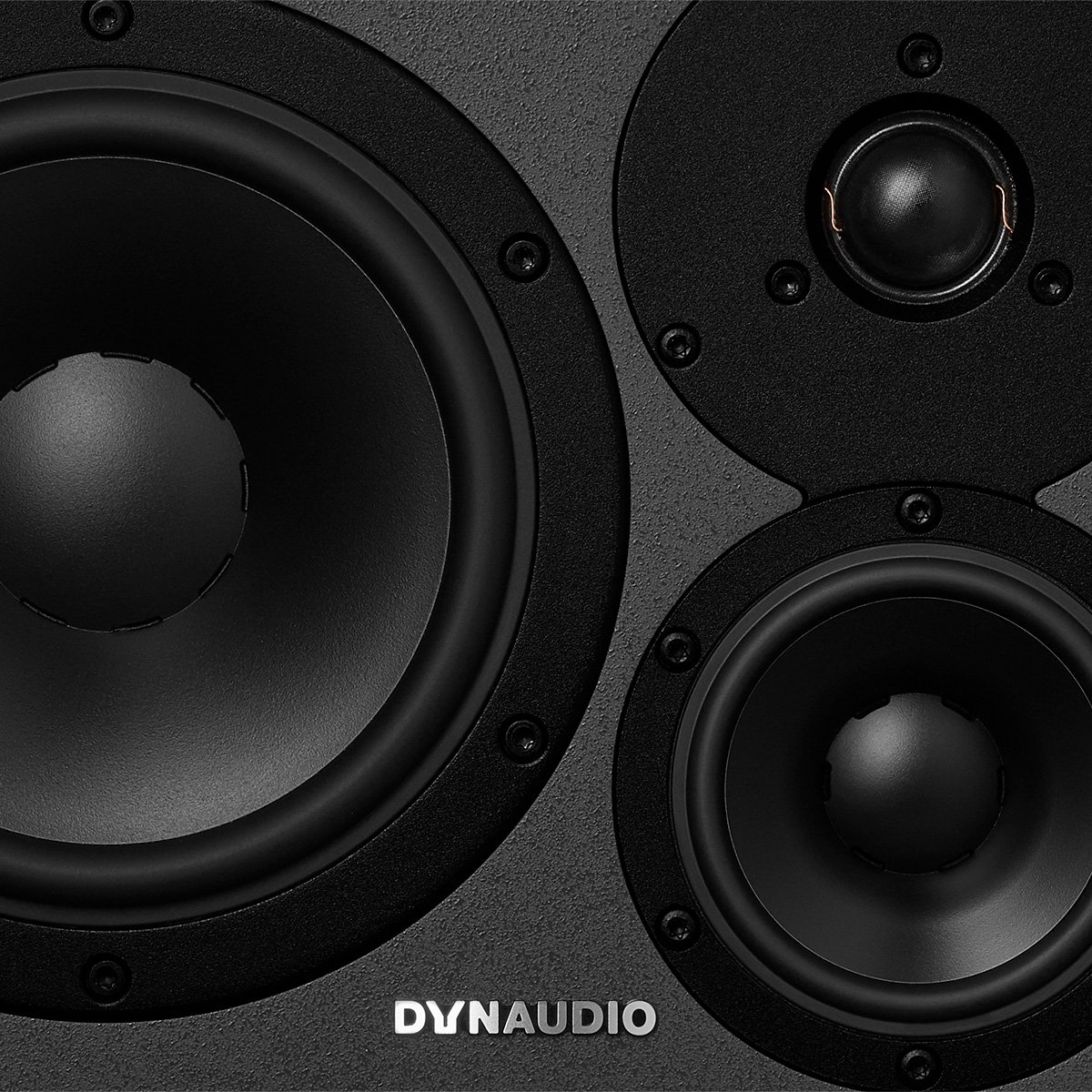
Placement options: we’ve left nothing to chance
We’ve made sure Core 47’s cabinet is stiff and inert, so all the vibration energy goes where it’s supposed to. That’s why we’ve given it a super-thick 44mm bezel, which contributes to its excellent linearity across the spectrum and means you can place it anywhere for a wide range of uses. We call them left and right, but you can use them tweeters-in or tweeters-out depending on your room and positioning. As with all Core speakers, we’ve put versatility high on our priority list.
Since every application is unique and monitors need to be placed in a variety of environments – either on their sides, vertically or sometimes even inverted with the woofer above the tweeter – we’ve designed Core 47 with indentations on all four sides. We’ve even developed special isolation pads that can be placed in order to protect the cabinet’s finish and halt vibrations from the mounting surface.
That goes for multi-channel set-ups, too: we’ve also designed special brackets have to mount Core 47 in orientations suitable for surround sound, immersive audio and other custom configurations.
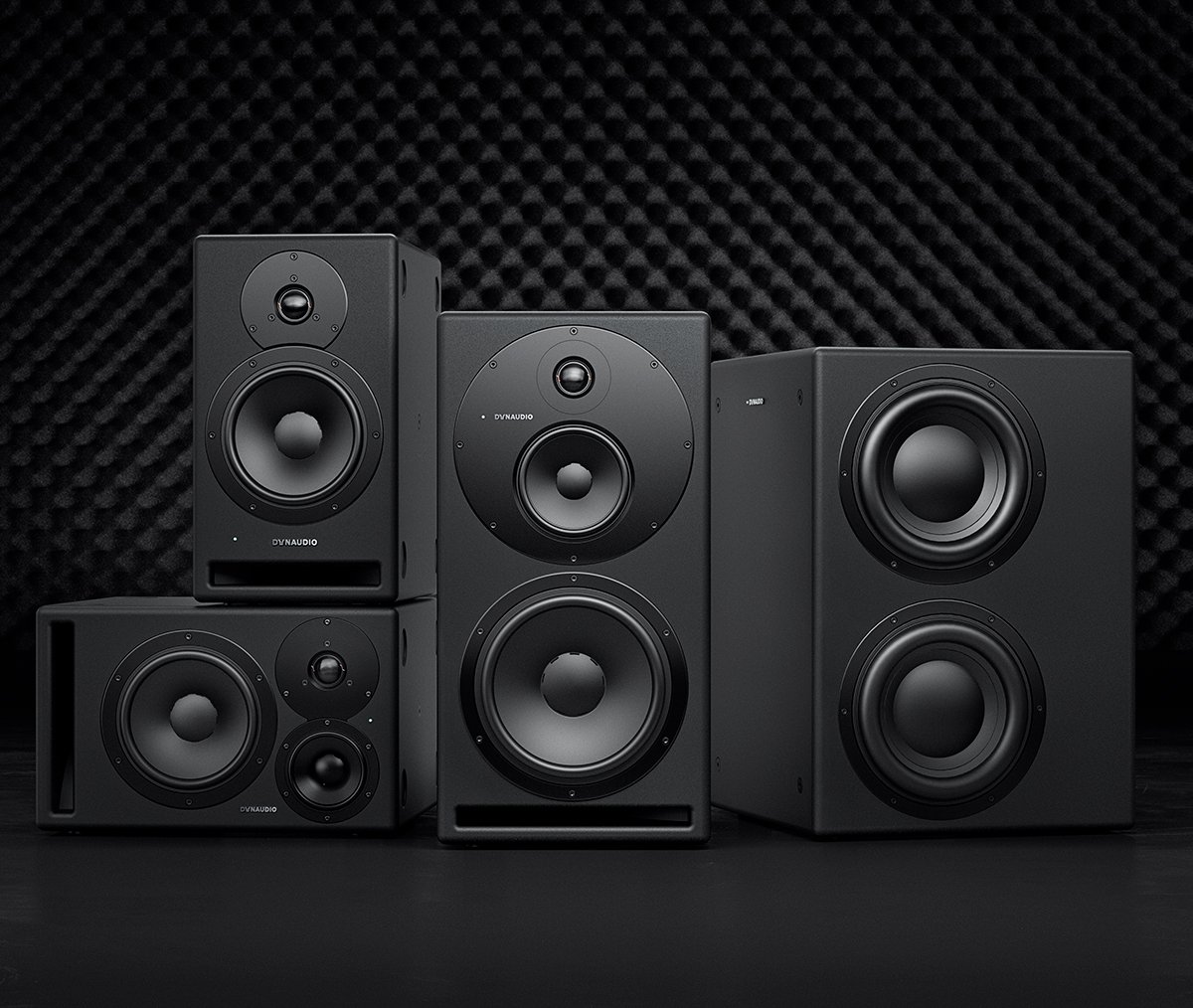
Designed for every type of studio
As the global success of our LYD 48 series has shown, there’s great demand for compact three-way studio monitors. Rooms might be getting smaller, but we all remember how it was mixing on big three-way mains…
Core 47 is designed for maximum flexibility and performance where its compact size and superb midrange detail are desirable. This includes music recording studios, TV dub stages, edit suites, broadcast trucks, ADR facilities, and game authoring suites. It also makes an excellent surround monitor in broadcast and theatrical dub stages – including multi-channel immersive-audio rooms and custom installations.
And because its compact size doesn’t diminish its performance either in frequency response or output SPL, it’s incredibly easy to integrate with other Core series monitors in calibrated, multi-channel monitoring systems.
Core 47 is a no-compromise three-way professional monitor that delivers the best modern DSP-optimised performance, effortless power, and classic Dynaudio heritage in a compact enclosure designed for every audio professional. This is what performance sounds like.
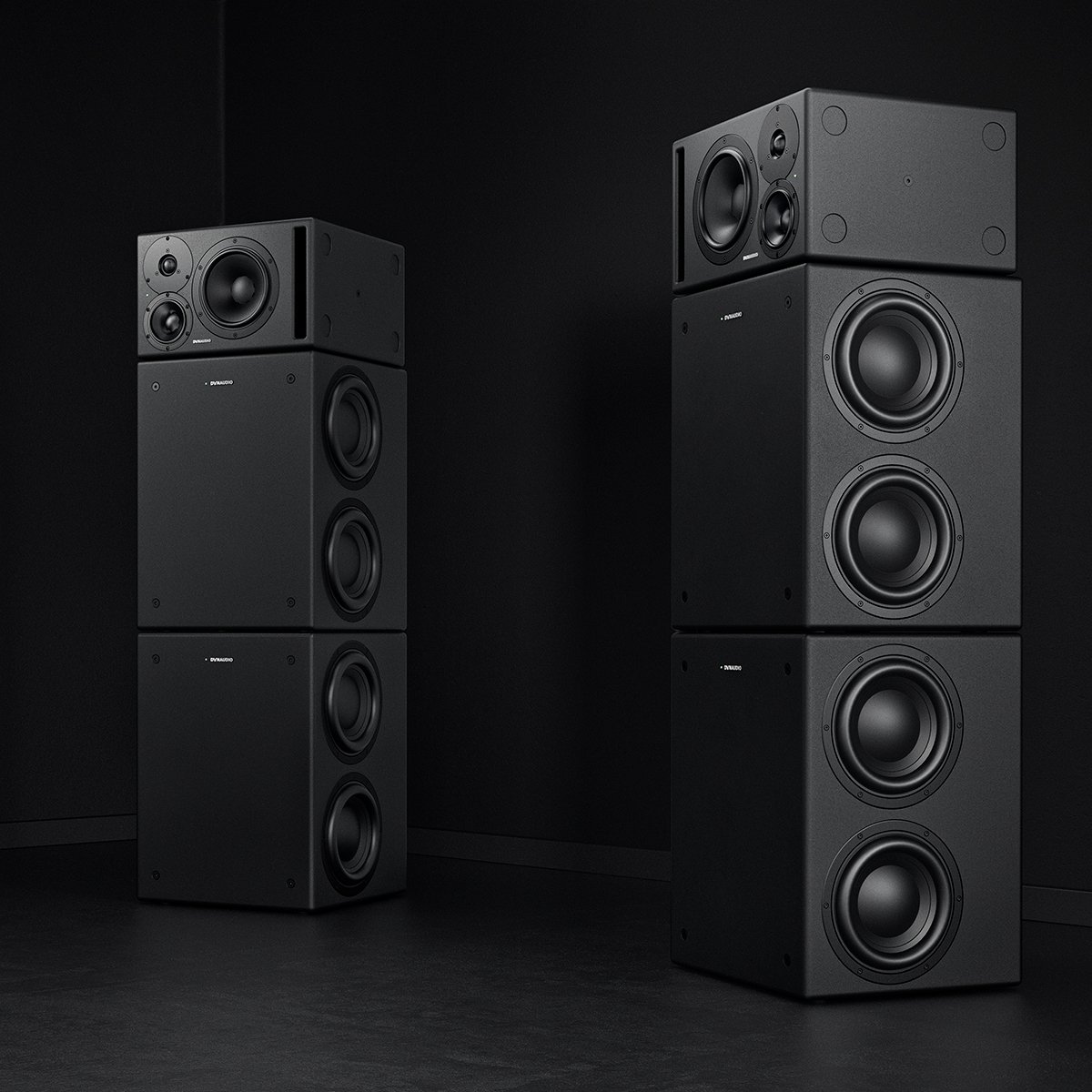
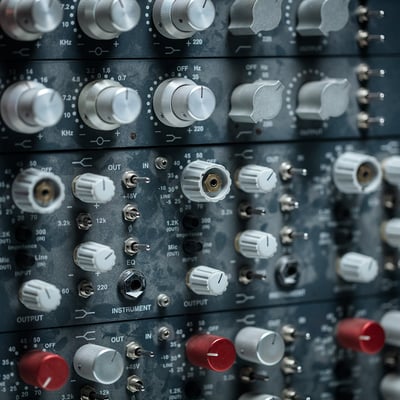

Core 47
Features
High-quality amplification
500 watts each for the mid/woofer and 150 watts for the tweeter.
Original drivers
Designed and made in Denmark using our world-class Jupiter measuring facility.
Advanced DSP
Simple to use, powerful to listen to: it lets you tailor Core 47 for any listening environment.
Core 47
Specifications
- Status Current
- Segment Pro
- Series Core
- Type Nearfield Monitor
- Analog inputs XLR
- Digital inputs AES3 XLR
- Digital outputs AES3 XLR
- Maximum SPL (Anechoic dB @ 1m) 113
- Maximum SPL (Half space dB @ 1m) 118
- Amplifier Power Woofer (W) 500
- Amplifier Power midrange (W) 500
- Amplifier Power Tweeter (W) 150
- AC Power Input 100-240V 50/60Hz
- Lower Cutoff (Hz @85 dB +/- 3 dB) 41
- Upper Cutoff (kHz @ 85dB +/- 3 dB) 24
- Lower Cutoff (dynamic) (Hz @ -6 dB) 35
- Upper Cutoff (dynamic) (kHz @ -6 dB) 30
- Box Principle Front-loaded bass reflex
- Crossover 3-way DSP-based
- Crossover Frequency (Hz) 475/5250 Hz
- Tweeter 1.1in Esotar Pro soft dome w. Hexis
- Midrange 4in MSP
- Woofer 7in MSP
- Weight kg 15.6
- Weight lbs 34.4
- Width mm 390
- Depth mm 355
- Height mm 240
- Width inches 15 3/8
- Depth inches 14
- Height inches 9 7/16
- Speakers per packaged box 1
- Finishes Dark Grey
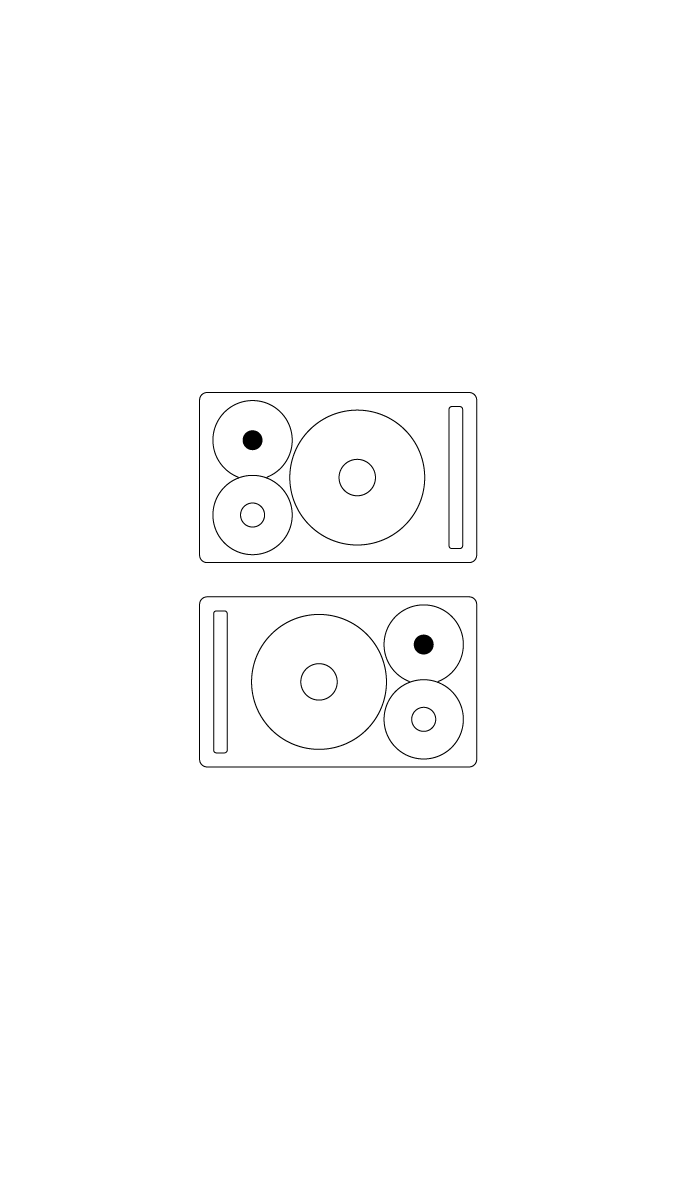
Core series
- Status:
- Segment:
- Series:
- Type:
- Analog inputs:
- Digital inputs:
- Digital outputs:
- Maximum SPL (Anechoic dB @ 1m):
- Maximum SPL (Half space dB @ 1m):
- Amplifier Power Woofer (W):
- Amplifier Power midrange (W):
- Amplifier Power Tweeter (W):
- AC Power Input:
- Max Stand-by Power Consumption (W):
- Lower Cutoff (Hz @85 dB +/- 3 dB):
- Upper Cutoff (kHz @ 85dB +/- 3 dB):
- Lower Cutoff (dynamic) (Hz @ -6 dB):
- Upper Cutoff (dynamic) (kHz @ -6 dB):
- Box Principle:
- Crossover:
- Crossover Frequency (Hz):
- Tweeter:
- Midrange:
- Midrange/Woofer:
- Woofer:
- Weight kg:
- Weight lbs:
- Width mm:
- Depth mm:
- Height mm:
- Width inches:
- Depth inches:
- Height inches:
- Speakers per packaged box:
- Finishes:
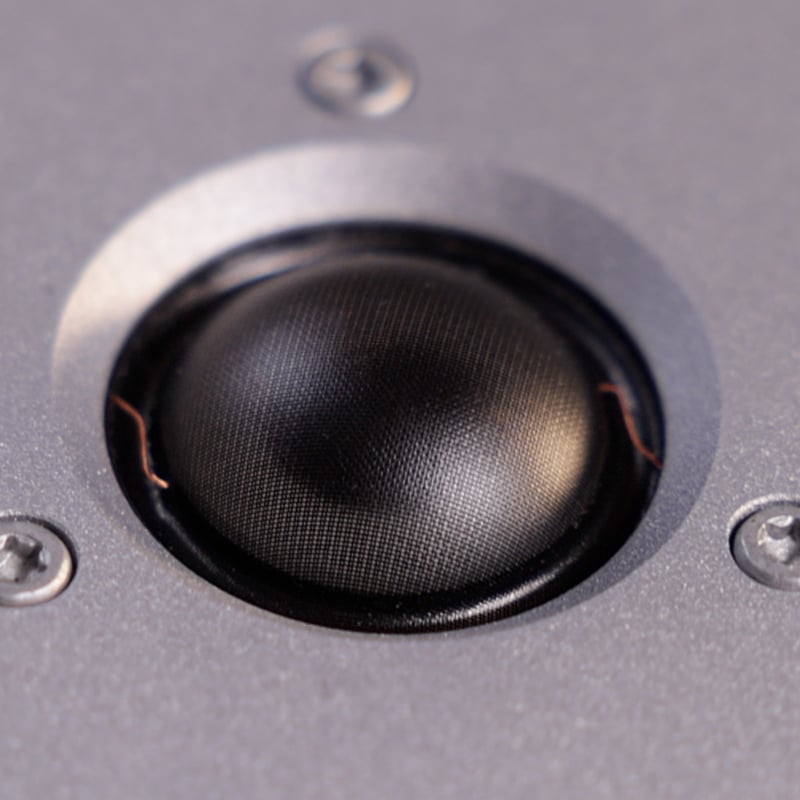
Why are there visible wires on our tweeters?
On this episode of Ask The Expert, Otto explains why our tweeters feature visible litz wires to the side of the dome, and discusses the benefits or so...
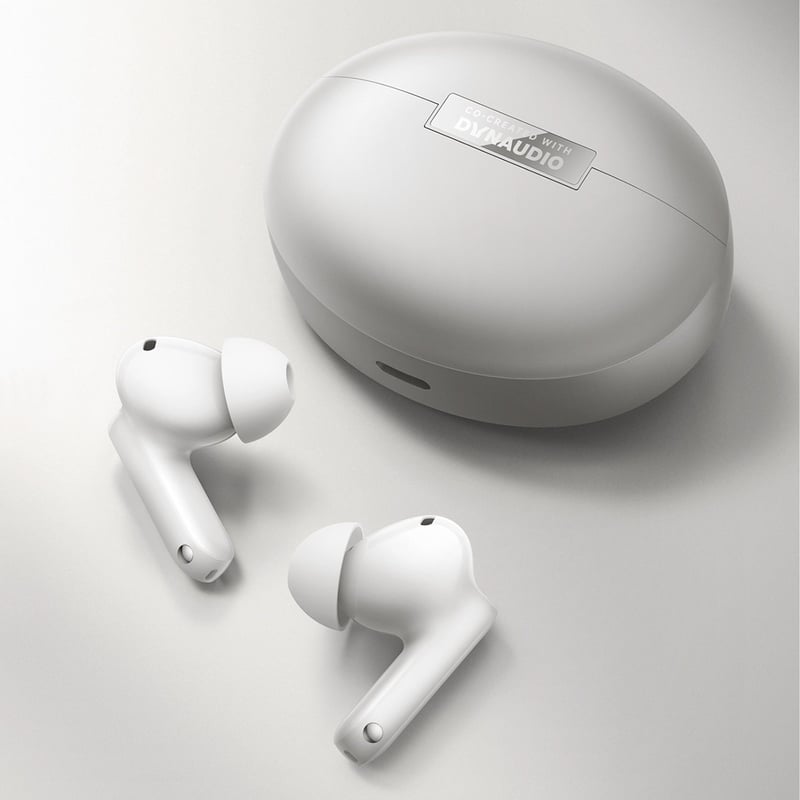
Dynaudio teams-up with OPPO for Enco X3s earbuds
We're thrilled to announce the release of OPPO's Enco X3s true wireless noise cancelling earbuds, with Dynaudio sound tuning.
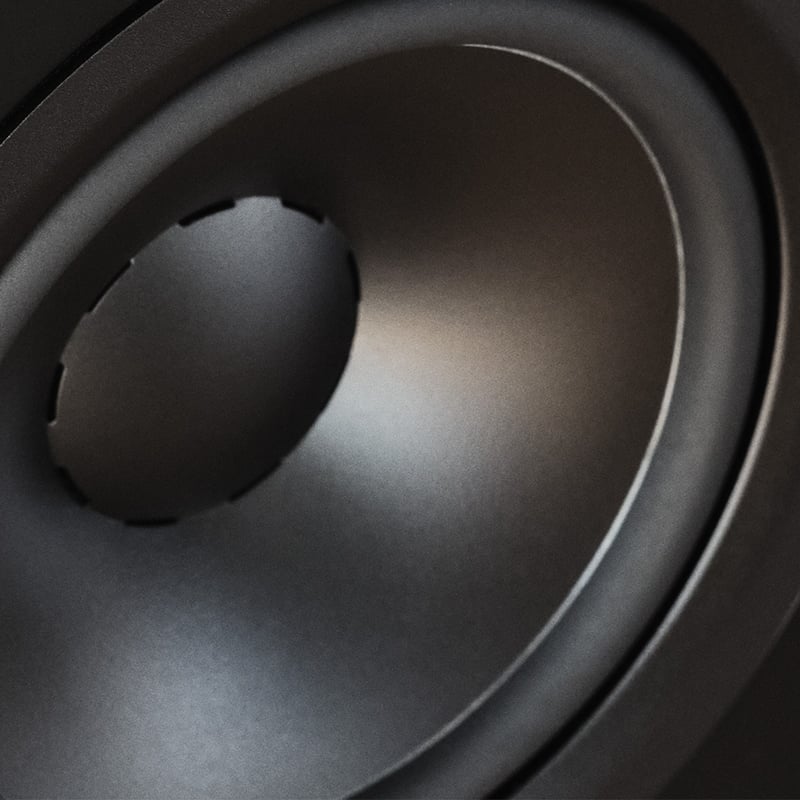
Why are there holes in our speaker drivers?
On this episode of Ask The Expert, Otto explains why our speaker cones have small, rectangular slots around the central dome. Far from being a random ...





